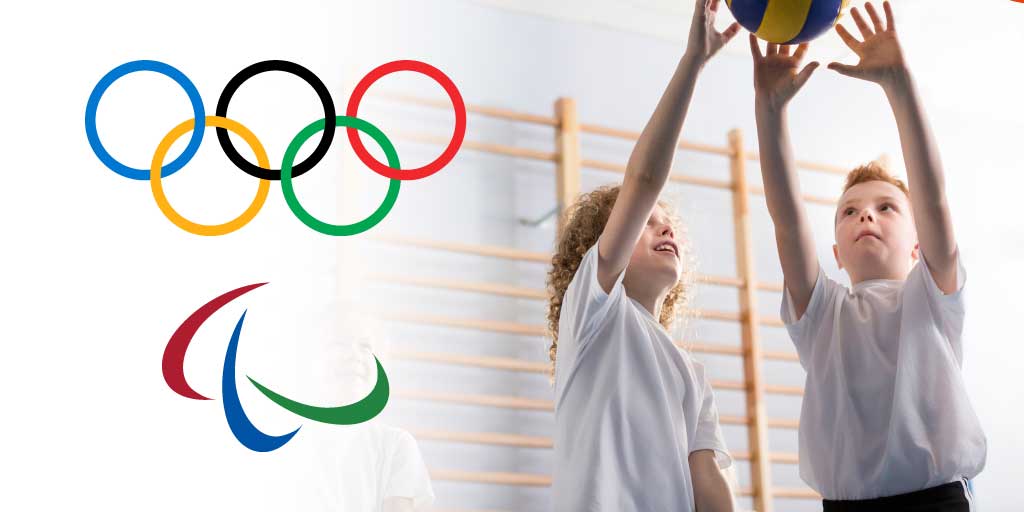Across the UK, children have been watching the Olympics and the Paralympics and have been inspired by their athleticism. Social media allows athletes, not just the winners, to show what it’s like to compete at such a high level and live in the Olympic Village.
For a lot of kids, they’ve seen Olympians compete, and it’s incited a passion for them to compete at some of the highest levels.
What should you do to offer them a healthy way to use that inspiration?
Making sport about healthy development
The Olympics showcase the best of the best. It’s an opportunity for kids to see Olympians as winners. But sport is not just about winning. Try to look at all elite competitions as an opportunity to see all the areas of sport. Where athletes cheer and support their teams and their competitors, and where they show how they’ve come back from injuries or were simply happy to be able to compete for their nation.
Physical activity should be introduced as a healthy part of their routine. Don’t just make it about medals, it should be a chance to explore new hobbies in sports and performing arts. Point out that just like in elite sport, it can be the start of new friendships and experiences.
Don’t make sports too serious
Look at the statistics. In the Paris Olympics, 10,500 athletes competed for 329 medals spread across 32 sports. Olympians only have a 3% chance of winning gold but a 100% chance of competing in their sport. Olympians live together in a village, meeting new people and exploring a new city. It’s not just about winning – it’s about the experience.
Getting involved in a sport can be an opportunity to make great friends and learn new skills. A physical activity programme that includes enrichment and new sports allows them to find a passion for one sport or enjoy having options. And when you add the mental and physical health benefits, there are no downsides.
Introduce them to sport in a positive way
Kids who enjoy sports are much more likely to enjoy sports as adults. Yet that has everything to do with how they are treated as kids. Parents and teachers must provide space for children to speak about their problems and make suggestions without judgment. Coaches and teachers who aren’t experienced can easily be supported by PE providers like First Step PE to create a positive environment for physical activity.
Learn to look for the little things. Praise a great kick or an interception. Cheer them on, but don’t get too involved in advice. Once you become too invested, you can pile on the pressure. You might even support children who excel more than those who are having difficulties.
Approach sports without too much pressure
Whilst there are benefits to specialising as children, there is research that shows that the younger the start, the more it increases the chances of serious injuries.
Less than 1% of junior athletes between 11 – 13 went on to become elite champions. Developing motor skills across different sports, as you do in activity programmes, is more common in professional or elite athletes. It teaches not only a love for movement but also helps kids pick up the patterns they might need if they choose to specialise.
Why not get in touch with us today? Give young people what they need with First Step PE! Let’s take our first steps together.



